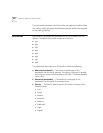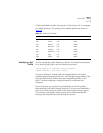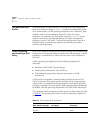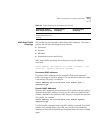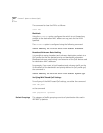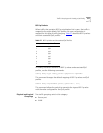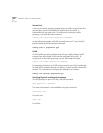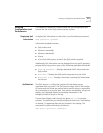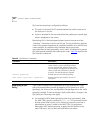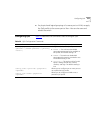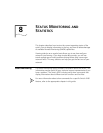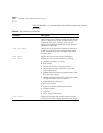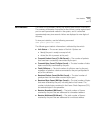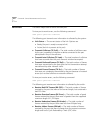
108
C
HAPTER
7: Q
UALITY
OF
S
ERVICE
(Q
O
S)
QoS monitor sampling is configured as follows:
■
The port is monitored for 20 seconds before the switch moves on to
the next port in the list.
■
A port is sampled for five seconds before the packets per second (pps)
value is displayed on the screen.
Monitoring QoS in the background places transmit counter and any
“overflow” information into the switch log. The log notification appears
if one of the queues experiences an overflow condition since the last time
it was sampled. An overflow entry indicates that a queue was
over-subscribed at least temporarily, and is useful for determining correct
QoS settings and potential over-subscription issues. Ta b le 28
describes the
QoS monitor commands.
Modifying a QoS
Policy
If you make a change to the parameters of a QoS profile after a QoS
policy has already been formed (by applying a QoS profile to a traffic
grouping), the timing of the configuration change depends on the traffic
grouping involved. To have a change in QoS profile effect a change in the
QoS policy, the following rules apply:
■
For destination MAC-based grouping (other than permanent), clear
the MAC FDB using the command
clear fdb
. This command should
also be issued after a policy is first formed, as the policy must be in
place before an entry is made in the MAC FDB. For permanent
destination MAC-based grouping, re-apply the QoS profile to the
static FDB entry. You can also save and reboot the switch.
Table 28
QoS Monitor Commands
Command Description
enable qosmonitor {port <port>}
Enables the QoS monitoring capability on the
switch. When no port is specified, the QoS
monitor automatically samples all the ports.
Error messages are logged to the syslog if the
traffic exceeds the parameters of the QoS
profile(s). The default setting is disabled.
disable qosmonitor
Disables the QoS monitoring capability.
show ports {<portlist>} qosmonitor
Displays real-time QoS statistics for one or
more ports.



